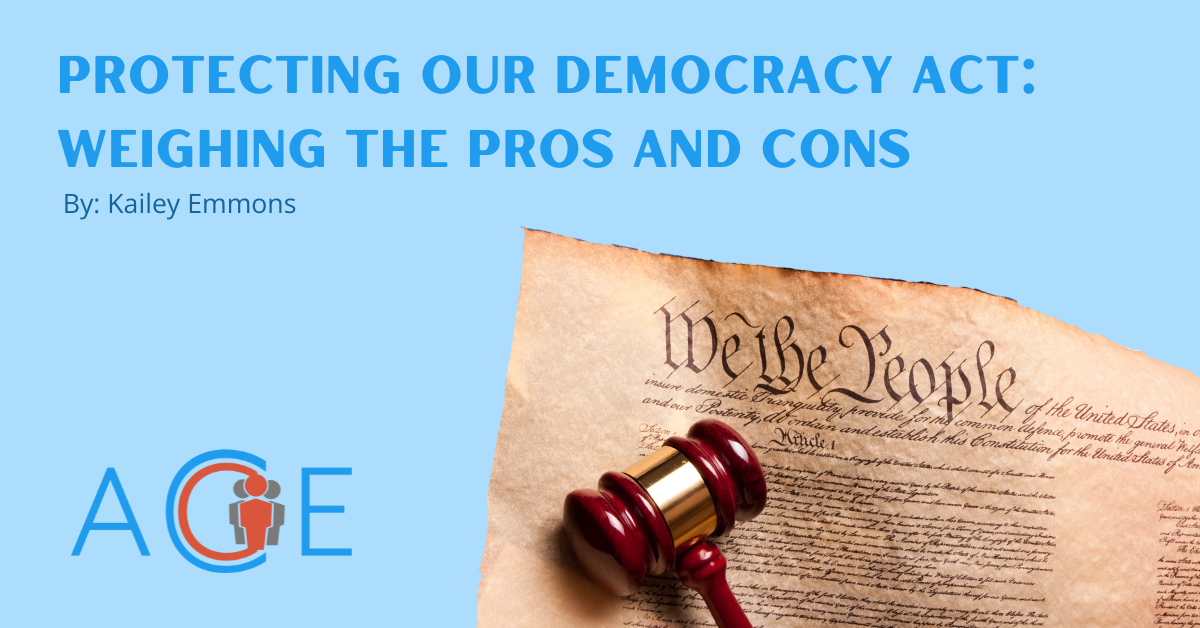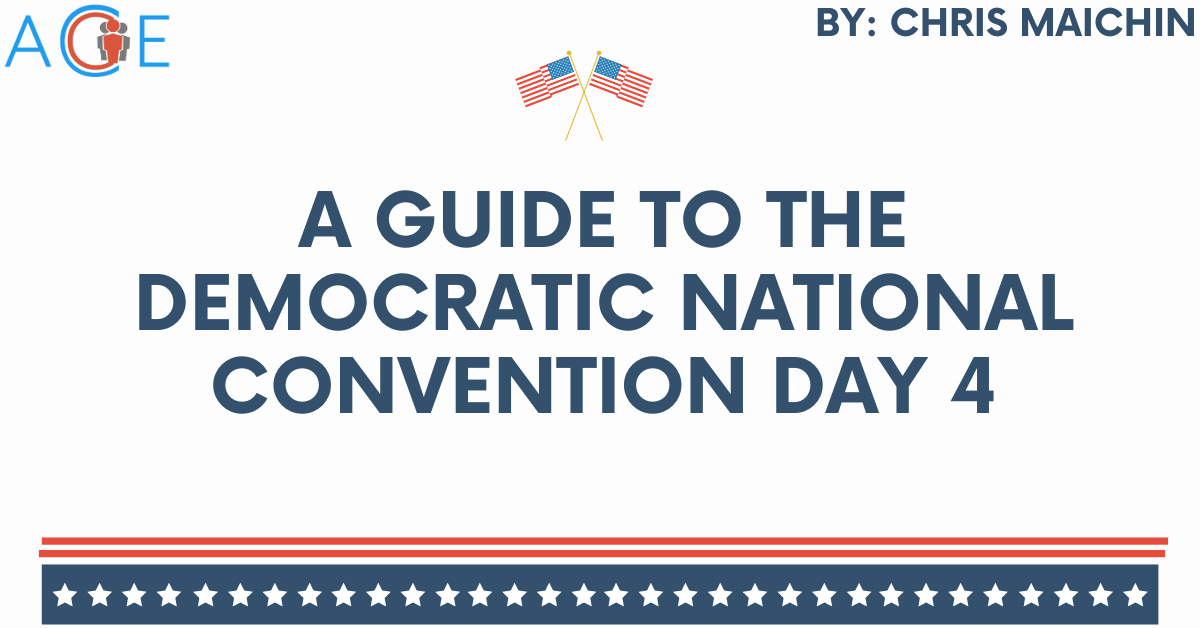Background
The Protecting Our Democracy Act (PODA) is a bill under consideration in Congress that aims to protect the integrity of the democratic process. The bill was originally passed in the House in 2021. It was received in the Senate in late 2021, where it failed to pass due to the use of a filibuster. It was reintroduced to the House in 2023, where it remains.
PODA’s provisions center around three main goals:
- Shifting power from the executive to the legislative branch: PODA would limit presidential powers, reassert Congress’s constitutional authority over federal spending decisions, and require congressional approval of presidential emergency declarations. PODA would also codify Congress’s subpoena and investigatory power, giving the legislative branch greater oversight of the executive branch.
- Preventing corruption: PODA would require greater presidential transparency, enact new protections for both inspectors general and whistleblowers, and codify the Constitution’s Emoluments Clauses, which prevent government officials from receiving profits from foreign officials or states. It would also reinforce the Hatch Act of 1939, which limits the political activities of federal employees and other government officials involved with federally-funded programs.
- Strengthening election integrity laws: PODA also prohibits foreign election assistance in the form of donations and would require greater transparency in digital political advertisements.
Arguments in Favor of the Protecting Our Democracy Act
One of the main arguments in support of PODA is that gradual institutional decay has undermined congressional authority. PODA’s proponents point to resistance to congressional oversight by former Presidents Donald Trump and Barack Obama as evidence of this phenomenon. They argue that the recent growth of the executive branch at the expense of the legislative branch can be mitigated through PODA’s provisions, which give Congress clear authority to enforce subpoenas, reassert congressional power over federal spending, and restrict a president’s use of emergency declarations. Proponents believe that this would effectively reform the balance of power between the two branches and restore the democratic process to the federal government.
PODA’s supporters also emphasize a need for greater defenses against corruption and abuses of power. They point to the Trump administration’s refusal to disclose tax returns, dismissals of inspectors general, and issuance of pardons for corruption charges against close associates as evidence of the need for greater oversight of the executive branch. They believe that reinforcing the Hatch Act would keep federal programs fair and non-partisan, reduce corruption, and prevent political patronage. Supporters also believe that government whistleblowers need greater protections. A poll conducted by Marist in 2020 found that 86% of American voters agree that there should be more legal protections for federal employees who report fraud. Whistleblower protections are also popular across party lines. Supporters of PODA believe that the bill would provide these popular protections by granting whistleblowers increased anonymity and a private right of action if outed by other government officials.
Finally, proponents of PODA argue that the bill will prevent foreign interference in elections. The federal ban against foreign interference in national elections has not been updated since the Supreme Court’s 2010 Citizens United v. FEC decision, which allowed corporations and other organizations to spend unlimited amounts of money on campaigns and elections. PODA’s supporters believe that this outdated policy has allowed foreign interests to fund campaigns, pay for digital advertising, and conduct social media campaigns freely, potentially spending almost $1 billion total on U.S. elections in the past decade. If passed, the bill intends to decrease foreign influence by explicitly banning foreign assistance in elections and requiring political groups to report all attempts by foreign actors to influence campaigns or elections.
Arguments Against the Protecting Our Democracy Act
The main argument against PODA is that the bill interferes with the separation of power between the three branches of government. Opponents of PODA argue that its provisions diminish the executive branch by requiring congressional oversight of the presidential pardon, a constitutionally-granted presidential power. Critics also believe that PODA would diminish the judicial branch by attaching new definitions to constitutional language that courts have already ruled upon, overriding court decisions and further upsetting the balance of power. Specifically, they point to PODA’s new definition of emoluments, which expands the definition to include payments arising from commercial transactions at fair market value. In light of this, opponents believe that PODA’s passage would upset the American political system of checks and balances by tipping the scales too far in the direction of the legislative branch.
Opponents of PODA also point to the bill’s protections for whistleblowers and inspectors general as a key reason to oppose the proposal. They believe that the increased protections and anonymity for whistleblowers make it difficult for the federal government to vet claims, shielding poorly-performing employees from scrutiny. They also believe that requiring congressional oversight for firing Inspectors General decreases government efficiency and intrudes on internal operations.
Critics also believe that PODA is politically-motivated. They argue that the bill specifically targets former President Trump and his administration’s actions. As such, they believe that PODA’s proponents only support it with the intent of politically damaging Trump and that the bill’s provisions are unnecessary.
Conclusion
In summary, PODA supporters argue that the bill would restore congressional authority, defend against government corruption and abuses of power, and prevent foreign interference in elections. Critics argue that PODA is a politically-motivated bill that would interfere with the constitutional separation of powers, make it difficult to vet whistleblower claims, and decrease the efficiency of the federal government.
After its introduction to the Senate in December 2021, PODA entered committee, where it has remained for the last three years. Even with its recent reintroduction to the House, it is unlikely to pass the Senate in its entirety unless the filibuster is abolished.

